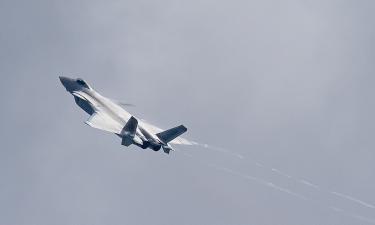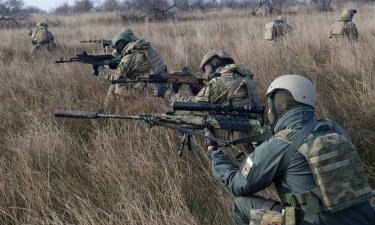The Weird Celebration of Hopporyodo-no-hi Day in Japan
Russian Cossacks demand Japan should return the tsarist gold back to Russia
Hopporyodo-no-hi is the name of the Japanese holiday – the day of northern territories. This day is celebrated all over Japan on February 7th. This date was set by the Japanese parliament in 1981 as a celebration of the Russian-Japanese Treaty of 1855. According to the treaty, Kurile islands belonged to Japan. However, as they say, much water has flowed under the bridges since the middle of the 19th century. As a matter of fact, no one, save historians, recollects anything about that document in Japan nowadays.
The day of February 7th originally turned to the celebration of the Japanese chauvinism and nostalgia for the past – for the time, when the country of the rising sun claimed power over entire East Asia. Moscow does not make any comments about this “holiday.” Maybe, it is the right thing for Moscow to do. At the end of the day, it is up to Japan to decide, what they want to celebrate. However, while Moscow officials stay calm on this day, the residents of the Russian Far Eastern island of Sakhalin decided that they were not going to keep silence.
An action of protest took place in front of the building of the Japanese embassy in major Sakhalin city Yuzhno-Sakhalinsk. The action was organized by Sakhalin Cossacks. About 200 people gathered for the meeting. As Regnum news agency reported, no one showed up from the building of the Japanese embassy. Those people in the embassy were probably very busy. Maybe, it was not so. The participants of the meeting did not only protest against the Day of northern territories. Sakhalin Cossacks set forth counter claims to Japan. They demanded Japan should return the Russian gold, which found itself in Japan after the revolution of 1917 and after the Civil War that followed it.
The gold reserve of the Russian tsar found itself in the hands of Admiral Kolchak back in those days. The admiral commanded White Army units in Siberia. After the White Army was defeated, the majority of the golden reserve was seized by Japan, whose troops occupied Russia’s Far East at that time. However, the Japanese government never acknowledged the fact that the tsarist gold was taken to Japan. If it is so, then there is nothing to discuss about its return to Russia. It stands the reason that the Russian government will not listen to the claims from Sakhalin Cossacks. The Kremlin is not likely to claim the tsarist gold from Japan, taking into consideration the fact that there are various opinions about it: some researchers say that the Russian tsarist gold in Japan is nothing but a myth.
As a matter of fact, it may not be that relevant indeed. There is another thing to see: the Japanese are being rather persistent in their attempts to convince the world of the fact that four South Kurile islands are a part of the Japanese territory. The Russian government ought to develop a strategy in response. It would not be bad for Russian officials to remember the days of the Japanese occupation of the Russian Far East in the 1920s, or the occupation of Sakhalin in 1905. At least, Russia suffered a lot more from the Japanese aggression than vice versa.
Vasily Bubnov PRAVDA.Ru
Translated by Dmitry Sudakov
Subscribe to Pravda.Ru Telegram channel, Facebook, RSS!




